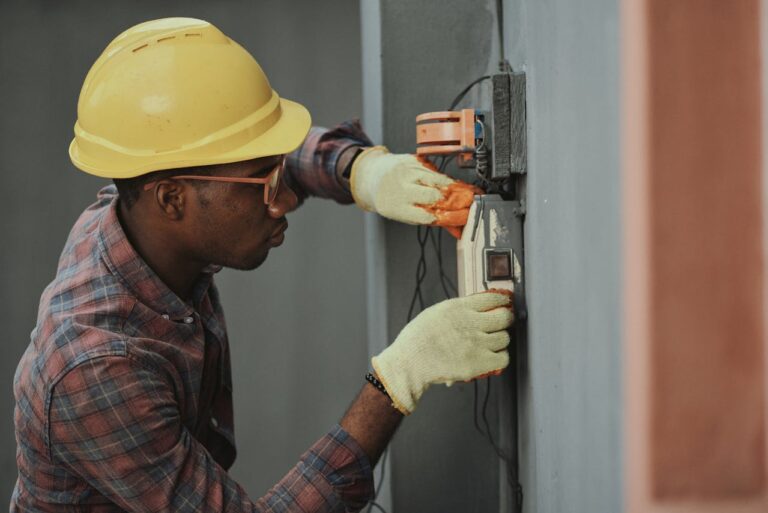Smart meters represent a major advance in home energy management. They provide consumers and energy providers with a more efficient, economical and environmentally friendly approach to electricity use. Unlike traditional utility meters that require manual reading, smart meters use real-time data transmission to provide a detailed view of energy consumption patterns.
This technological innovation enhances the accuracy of energy bills and enables homeowners to improve their energy use, resulting in potential cost savings and reduced environmental impact.
Read on to learn about the most important benefits of installing a smart meter in your home.
Improve energy efficiency
One of the primary benefits of installing a smart meter is improving energy efficiency in your home. Smart meters can provide detailed information about your energy usage in real time, allowing you to identify which appliances are consuming the most energy and at what time. This insight enables you to adjust your habits accordingly, which can lead to lower energy consumption and lower utility bills.
Furthermore, energy providers can use data from smart meters to better manage the load on the grid, thus increasing overall energy efficiency.
Cost saving
Detailed insights into energy usage through smart meters can lead to significant cost savings. By understanding your energy consumption patterns, you can identify unnecessary energy waste and make informed decisions about reducing your usage. Additionally, smart meters can facilitate various pricing schemes offered by energy companies, such as time-of-use rates, which encourage you to use electricity during peak hours when it is cheapest. This helps you save money and helps balance the load on the electricity grid, which can prevent outages and reduce the need to import expensive energy during peak times.
Environmental benefits
Smart meters are essential to promoting environmental sustainability by enabling more efficient use of energy resources. These devices can provide detailed, real-time data on energy consumption, allowing you and your energy suppliers to make informed decisions that lead to more sustainable energy use. For example, during peak energy demand, smart meters can help reduce the need for additional, often polluting, power generation facilities. This targeted use of energy conserves resources and significantly reduces greenhouse gas emissions, effectively contributing to global efforts to combat climate change.
Moreover, with the increasing integration of renewable energy, smart meters can effectively balance energy supply from renewable and non-renewable sources, ensuring a smoother transition to green energy solutions.
Improve billing accuracy and eliminate estimated billing.
Smart meters can revolutionize utility bills by eliminating the guesswork associated with traditional meter readings. These advanced meters provide accurate, up-to-date data to energy providers, ensuring that you are billed based on your actual energy consumption rather than estimates. This accuracy prevents scenarios where you might encounter unexpectedly high bills or, conversely, where utilities incur losses by undercharging.
Switching to smart metering means eliminating the inconsistencies and frustrations associated with estimated billing and fostering a more transparent, fair and satisfying relationship between you and your service providers. It also increases customer confidence in utility billing, as you can access your consumption data in real time and better understand your statements.
Facilitate faster and more efficient service responses.
Smart meters can greatly enhance the ability of utility providers to respond quickly to service outages. By automatically alerting energy companies to power outages, these meters can speed up the restoration process, even before consumers are aware of the problem. This rapid response ability reduces downtime and improves customer satisfaction with utility services.
Furthermore, advanced smart meter diagnostics allow many issues to be addressed remotely, reducing the need for physical service visits, which can be time-consuming and costly. This efficiency reduces operational costs for utilities and reduces the environmental impact of dispatching service vehicles, in line with broader environmental conservation goals.
Privacy Concerns with Smart Meters
Despite the many benefits, some homeowners have reservations about smart meters, particularly regarding privacy. In theory, the detailed data collected could be analyzed to determine personal habits and behaviors. However, utility companies are typically bound by strict regulations regarding data handling and privacy. Consumers need to understand how their data will be used and what measures are in place to protect it.
Therefore, if you want to discuss privacy concerns associated with smart meters in detail, you may consider consulting professionals or referring to reliable online resources for valuable insights.
conclusion
Installing a smart meter in your home offers many benefits. With the above information in mind, smart meters can help you manage your electricity usage more effectively and support broader energy conservation efforts. While there are privacy concerns, these can be mitigated through informed consumer practices and utilities’ compliance with regulatory standards. Moving to smart meter technology is a positive step toward a more sustainable and efficient energy future.

